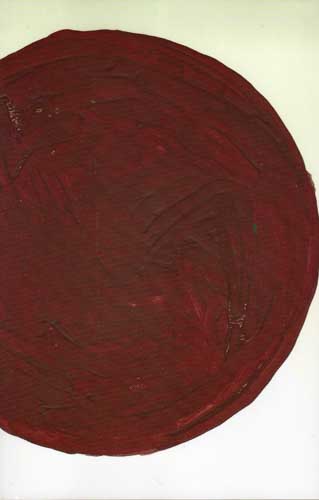Mississippi Review – Winter 2014
The large, red circle in the journal’s cover makes sense, because family and blood runs deep in this issue, in poems and short stories that talk about husbands and wives, sibling rivalry, or fathers and daughters.
The large, red circle in the journal’s cover makes sense, because family and blood runs deep in this issue, in poems and short stories that talk about husbands and wives, sibling rivalry, or fathers and daughters.
You feel this red in Cara Blue Adams’s “Seeing Clear,” the first story, which starts with lines that can make you chuckle: “Dad’s suicide attempts began when I was ten. He worked at killing himself more earnestly than he had any job. First it wasn’t overt—just lots and lots of cocaine.” This is the voice of Amelia whose father is obsessed with flight not only from his family, but from himself. After leaving Amelia and her mother for a younger woman named Ireland, he ends up leaving her, too, and disappears. But he cannot quite forget his daughter, and sends Amelia postcards without a message, as though his daughter is his last life-line, and any contact with her, however thin, might deter him from taking his life.
Aurelie Sheehan’s “Wolf in the Basement,” the shortest story in the issue, is also a story with a disappearing father. The narrator’s family finds a stray wolf and takes it in as a pet. Sheehan’s information about the father and the wolf is quite clever: “Some mornings I watched as my father and Wolfie walked down the driveway on their way out for a run . . .” Although this information appears innocent, that somehow it does not carry enough weight for the story; it is probably this story’s main backbone, complemented by another piece of information about the narrator’s parents: “fights were had up and downstairs.” Soon, both tidbits converge into one sad moment in the narrator’s childhood: “On the last day my father ran with the wolf . . .”
In Sheehan’s and Adams’s stories, fatherhood and being a husband appears like a rite of passage, a necessary phase, a checkpoint in a long, solitary journey. But you don’t quite feel this kind of manhood in Bob Hicok’s poems in this issue. In “Friends”, the heart of home is a husband’s love for his wife: “Twenty / years I had had / no nipple except / my wife’s in hand / or mouth. . . .” Here, untarnished fidelity appears like an achievement, a badge not so much of courage, but of deep respect for someone, for the institution of marriage. The intrusion of breast cancer and its treatment underlines a change in the appearance of the narrator’s wife. And one wonders how this transformation impacts the husband’s feelings for his wife, his needs. What will happen to those twenty years after mastectomy? Thus, the curious title of this poem, which somehow embeds all sorts of future allowances between the couple in question.
Sydney Bolding’s “In Leyogán” (or in French Léogâne) is a glimpse of humanity as family, from the point of view of an individual involved in a humanitarian organization distributing food in Haiti, we assume; is set after the 2010 earthquake there:
It is a Tuesday night
but all the village arrives for church,
for rice—one bag per family, one more
per child. Their names are merely a list.
Amidst that crowd, the narrator notices a woman, in a ruffled shirt, thirsty, longing “Not for / rice or water. . . . Not amazing grace. But longing / like mountains, with broad-chested hearts / to the earth, longing like wind unafraid / to go at its pace. . . .” It’s the First World face-to-face with a territory facing severe economic struggles.
Written by recent Wallace Stegner Fellow Molly Antopol, the longest piece in the issue is “Minor Heroics,” a short story about two brothers, which takes place in a moshav, a cooperative, agricultural settlement in Israel pioneered by migrants during the second wave of Jewish migration. The story is told in first person by the voice of Oren, who is only a year younger than his brother Asaaf. Both have served the army. In a way, Oren looks up to his brother, for having commanded a unit guarding a settlement in the Hebron, while Oren feels different about his schedule: “home every evening, weekends working in the crops or feeding the chickens.” One Sunday, when the brothers are off from work, disaster strikes: the tractor that Asaaf is driving tips, and “slashed [his left leg] wide open, all the way down to muscle and bone.” The brothers, their mother, and Asaaf’s girlfriend, Yael, struggle to deal with Asaaf’s amputated leg.
I was hoping for a note from the editor to introduce the issue. That silence is palpable. But perhaps there’s reason for skipping that. If you’re into family, this issue has many things to offer.
[www.usm.edu/mississippi-review]





